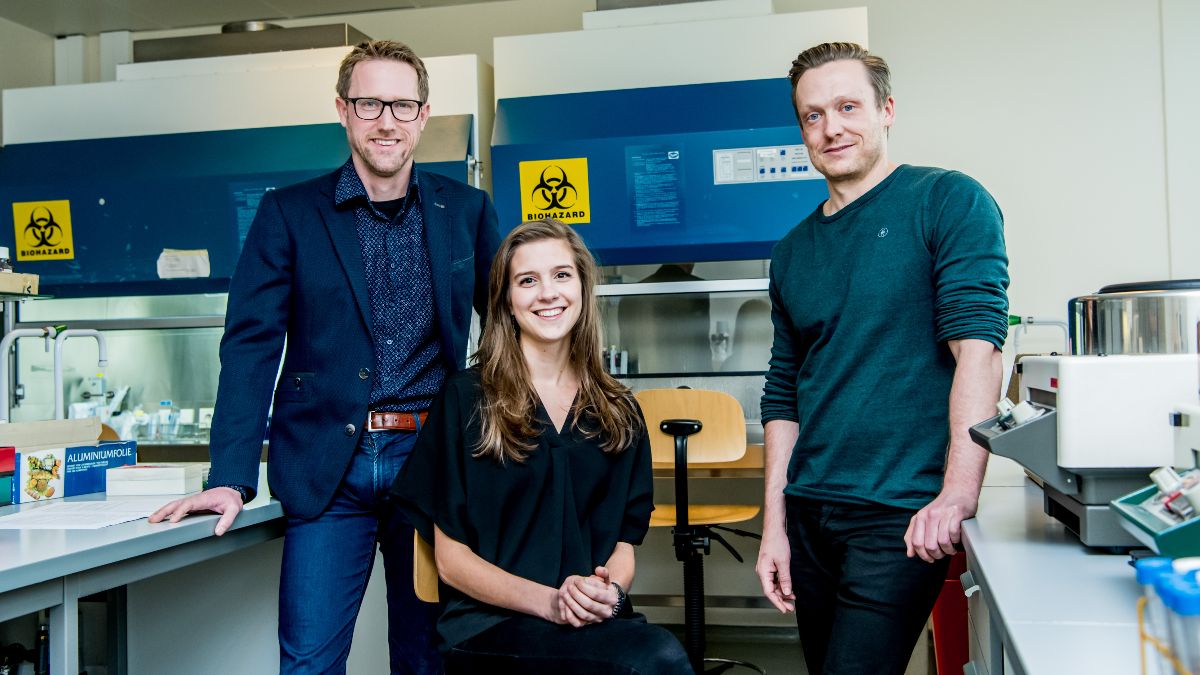VIDEO Faithful to its mission to serve the public interest in the field of fundamental and translational research, the Belgian Charcot Foundation has set up the Charcot Fellowship, a programme of doctoral grants for young researchers (under 30). The grant will enable them to do four years of research dedicated to MS and make advances in the fight against the disease. The goal of the grants is to strengthen the research potential of teams in Belgium interested in multiple sclerosis. By involving young researchers who want to do their doctoral thesis on multiple sclerosis, the grant is intended to have a long-term impact on research to defeat the disease.
 CHARCOT FELLOWSHIP 2016-2020:
CHARCOT FELLOWSHIP 2016-2020:
Elien GRAJCHEN (UHasselt)
Photo: The research group: Dr. Jeroen Bogie (co-promotor), Fellow Elien Grajchen, Prof. Dr. Jerome Hendriks (promotor) - UHasselt.
 The PhD project focuses on the effect of myelin uptake on a type of immune cell, namely the macrophage. The brain lesions that are typically present in multiple sclerosis (MS) patients are characterized by excessive infiltration of immune cells, being mainly macrophages. On the one hand, these cells are described as malignant cells that help to destroy the isolating layer of myelin that is important for proper nerve conduction, leading to brain damage and paralysis. On the other hand, researchers have reported that macrophages also aid in the healing process of MS patients. It remains unclear which factors determine the role they play in MS pathology. Our findings show that although myelin initially induces beneficial properties in macrophages, chronic uptake of myelin impairs these beneficial properties and instead stimulates their harmful features.
The PhD project focuses on the effect of myelin uptake on a type of immune cell, namely the macrophage. The brain lesions that are typically present in multiple sclerosis (MS) patients are characterized by excessive infiltration of immune cells, being mainly macrophages. On the one hand, these cells are described as malignant cells that help to destroy the isolating layer of myelin that is important for proper nerve conduction, leading to brain damage and paralysis. On the other hand, researchers have reported that macrophages also aid in the healing process of MS patients. It remains unclear which factors determine the role they play in MS pathology. Our findings show that although myelin initially induces beneficial properties in macrophages, chronic uptake of myelin impairs these beneficial properties and instead stimulates their harmful features.
During my PhD I will investigate the pathways that are involved in the myelin induced changes and target these pathways to prevent the induction of harmful properties, ultimately decreasing improving tissue repair and the patient's quality of life. Read the interview here.

